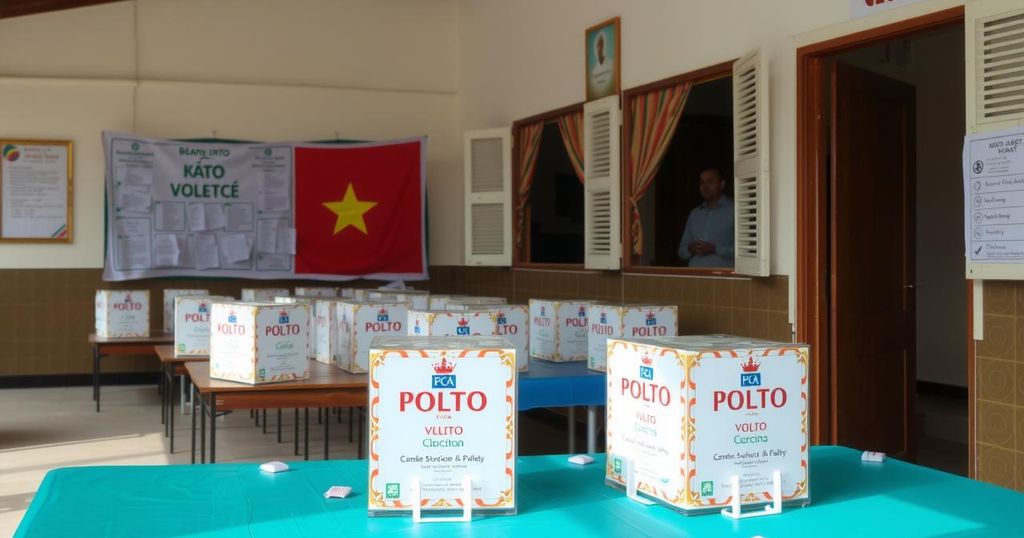Comoros Voters Prepare for Crucial Parliamentary Elections Amidst Controversy

Voters in Comoros cast ballots for the 33-seat parliament in a highly contested election, with approximately 338,000 registered participants. The election follows President Azali Assoumani’s re-election amidst allegations of irregularities. Opponents accuse Assoumani of authoritarianism and suspect a dynastic succession plan involving his son. Despite calls for boycott, some opposition candidates urge participation to expose ruling flaws.
Voters in the Comoros archipelago are heading to the polls to elect members of the 33-seat parliament, marking an important political event a year following President Azali Assoumani’s re-election, which the opposition claims was tainted by significant irregularities. The ruling party has dismissed these allegations. Polling commenced early on Sunday, with approximately 338,000 registered voters.
This election is significant as the last parliamentary vote took place in January 2020. The Supreme Court has approved nearly 100 candidates to run for the parliamentary seats. President Assoumani, who initially ascended to power through a coup in 1999, has faced accusations of authoritarianism from his opponents. Concerns have emerged regarding his intention to groom his eldest son, Nour El-Fath, as his successor upon the completion of his term in 2029, particularly following the delegation of extensive governmental powers to his son in 2024.
While certain opposition factions, including Juwa, led by former President Ahmed Abdallah Sambi, advocate for a boycott of the elections, others counter this call. Hamidou Karihila, a candidate for the opposition’s Hope of the Comoros party, expressed that participation in the election would unravel the weaknesses in the Assoumani administration and help hasten its decline. Parliamentary election results are anticipated by Friday.
The political landscape in the Comoros has been tumultuous, with President Azali Assoumani’s long-standing rule since 1999 characterized by allegations of electoral misconduct and authoritarian practices. The opposition has consistently challenged his governance, culminating in claims that Assoumani’s recent re-election was marred by irregularities. This political climate, alongside concerns regarding dynastic succession, highlights the tensions within Comorian society as citizens prepare to cast their votes for a parliamentary assembly that plays a critical role in shaping the nation’s governance.
In summary, the upcoming parliamentary elections in the Comoros underscore a significant moment in the nation’s political journey, characterized by tension and controversy surrounding President Assoumani’s leadership. With a divided opposition and a substantial number of candidates contesting, the elections may serve to further illuminate the challenges facing Comoros’ governance, particularly in light of persistent allegations of authoritarianism and concerns regarding succession. The electoral outcome, expected by Friday, will reveal the electorate’s stance amidst these ongoing tensions.
Original Source: www.armidaleexpress.com.au







